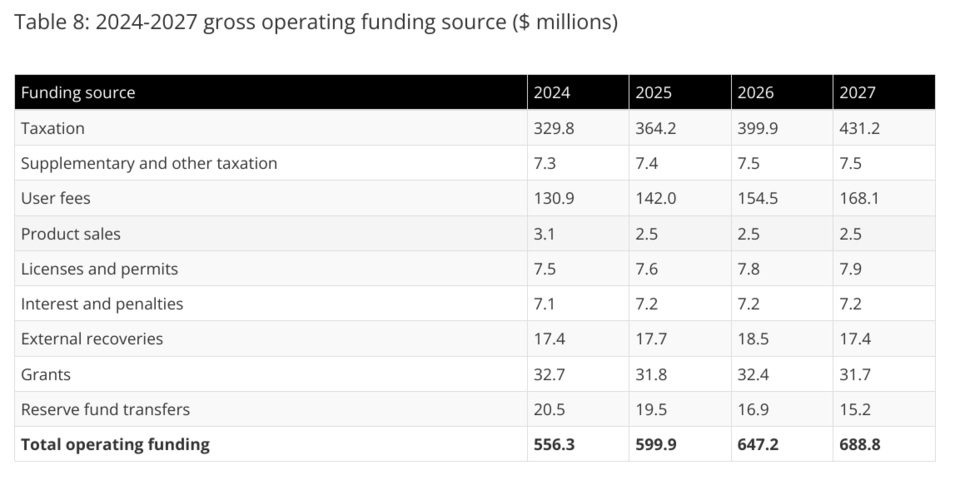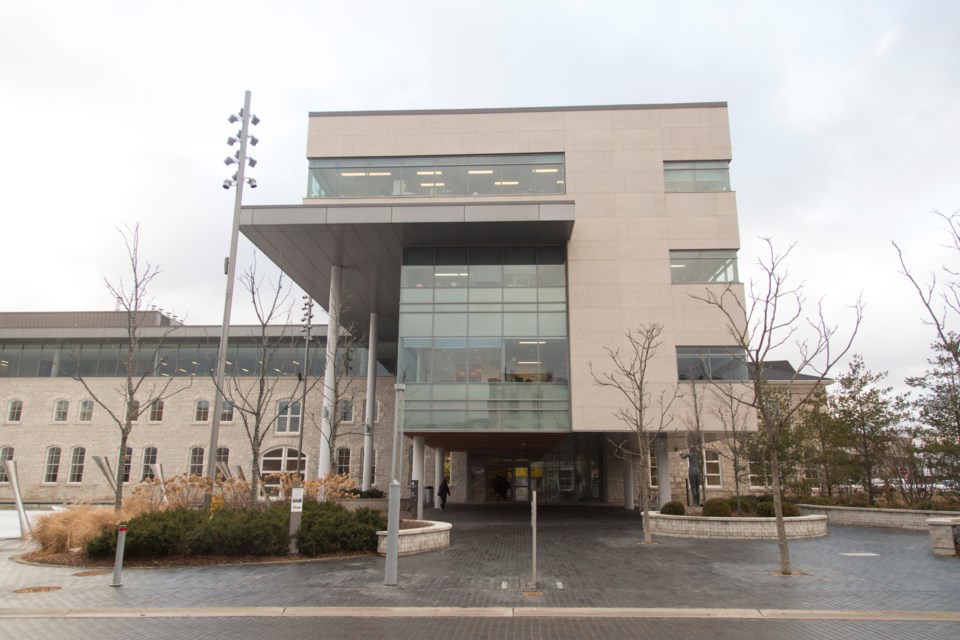CORRECTION: The draft budget includes $451,193 for the city's bicentennial celebration in 2027. Those funds are to come from reserves. This article previously stated the draft document contained no funding for the bicentennial.
Facing the prospect of a 10.32 per cent residential tax increase for next year, with additional increases on the horizon, Mayor Cam Guthrie says public input will be particularly important this time around.
“This will certainly be the most difficult budget I’ve ever experienced,” said Mayor Cam Guthrie, who has served on council since 2014. “My focus now is to really rally my council team together because we are going to need 13 heads to collectively try to figure out how we can focus on a balance of both value for the community and affordability.”
The draft 2024 tax increase means an additional $451.92 for the average household, with a municipal assessment of $407,000.
Water, wastewater and stormwater rates would increase by $7.39 to $9.48 per month for the average home each of the next four years.
“A lot of the pressures that the city is facing are the same exact pressures that households or businesses are facing,” Guthrie said, referring to rising inflation and cost increases. “Cities are not immune to these things.”
About 25 new staff positions are also included in the draft document, spread over four years, as well as increased funding for social services provided through the County of Welllington. That budget is set to rise by $4.6 million in 2024 and another $1.15 million in 2025.
The draft budget includes $451,193 for the city’s bicentennial celebration in 2027, with funding coming from reserves. There is to be $103,020 in 2025, $248,150 in 2026 and $100,150 in 2027.
The draft budget, which was released on Friday, is set to be formally presented to council this coming Tuesday. Public delegations regarding the budget are to be heard on Nov. 15, with council scheduled to consider changes on Nov. 29.
It includes tax increases of 9.38 per cent in 2025, 8.67 per cent in 2026 and 6.67 per cent in 2027, though council will have a chance to make adjustments heading into each year.
“Staff have been working on this for months,” the mayor noted. “They have done a lot of work to even get it to this point where council will now take over to consider how it meets the needs of the community.”
.png;w=960)
The draft budget is broken out into three categories – things council can control (4.97 per cent increase), things council can’t control such as the police and library budgets (1.98 per cent increase) and the provincial impact local levy (3.38 per cent).
Guthrie publicly discussed breaking out the provincial impact portion last year – which he dubbed the PILL – but opted not to formally bring the idea to council. He said he brought it back this time around to provide transparency for property taxpayers.
“It could have been much lower if the province had done what they promised to do a year ago,” Guthrie said, referring to statements made by government officials that municipalities would be made whole following cuts to fees they can collect from developers.
He hoped to learn how cities would be made whole during Thursday’s economic update by the provincial government, but no such details were announced.
City staff have projected a loss of $227 million in development charges, parkland fees and others over the next 10 years as a result of provincial legislation passed in the past year – money that would have been collected for new builds to help cover the cost of infrastructure and expanding city services to new residents.
Some of the “tough questions” the city faces are around service levels and consideration of pausing or stopping projects.
“These are the natural and appropriate questions that are going to need to be asked to come to a conclusion of both value to the community for the taxes that are paid, and also that balance with affordability,” Guthrie said. “I want to kind of nudge the public to think in those terms – what do you value, what services do you want maintained … are you interested in services that shouldn’t be maintained?”
Planned upgrades to Guelph Central Station, which were pulled from the 2023 budget, are set to be pushed off again, stretching in 2028 to 2033. That cost is estimated at $12.5 million.
Between the budget release and Nov. 29, “It’s all about engagement, all about hearing from the community,” said Guthrie.
He urges residents to participate in the formal budget process as well as attend upcoming town hall meetings arranged by councillors in each ward. The city is also launching an online survey for residents to provide input.

Under strong mayor powers given to Guelph in the summer, council no longer has authority to formally approve the budget. That’s to be done by the mayor.
However, the mayor can veto any council-approved alterations to the spending plan within 10 days. Any such veto can be overridden with a two-thirds majority council vote.
The deadline for that to happen is Dec. 25, meaning the 2024 to 2027 budget becomes official on Christmas Day.
This is the city’s first effort at setting a four-year budget, but it’s not the first multi-year budget. A two-year financial plan was approved for 2022 and 2023, with some adjustments made heading into the second year – a process referred to as confirmation of the budget.
There was a 4.21 per cent residential property tax increase in 2022, with another 4.46 per cent jump in 2023.
